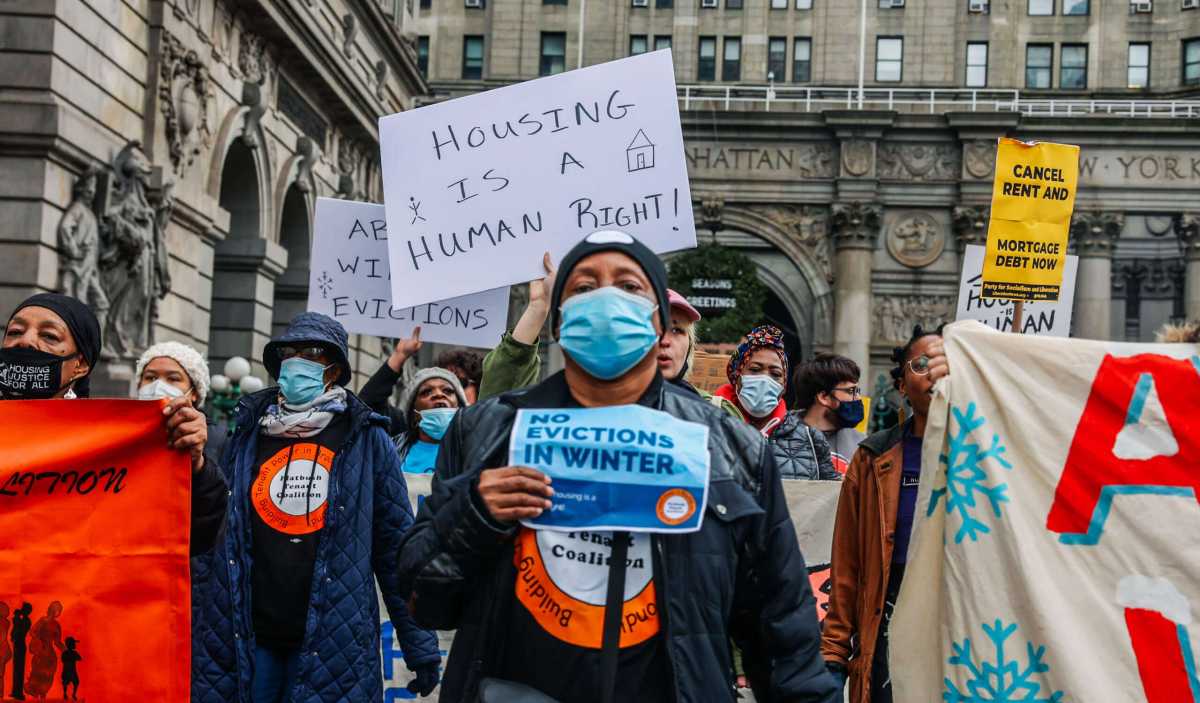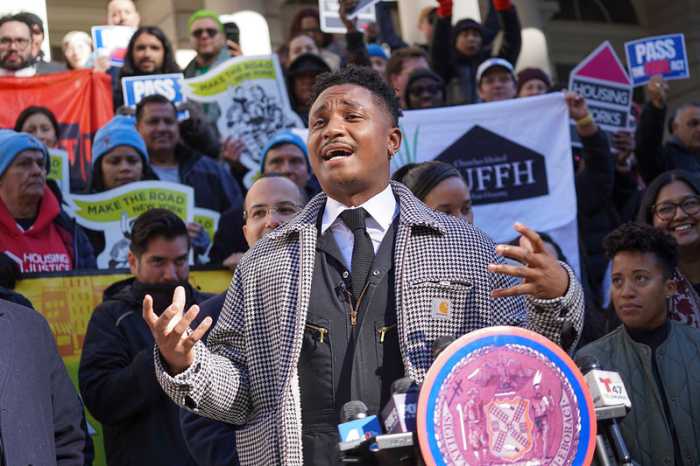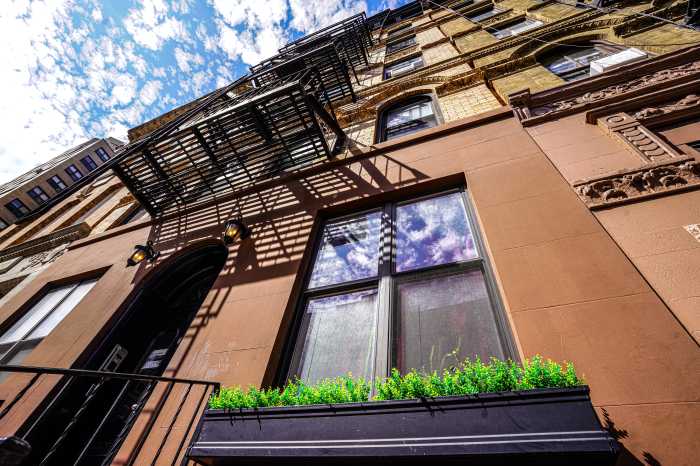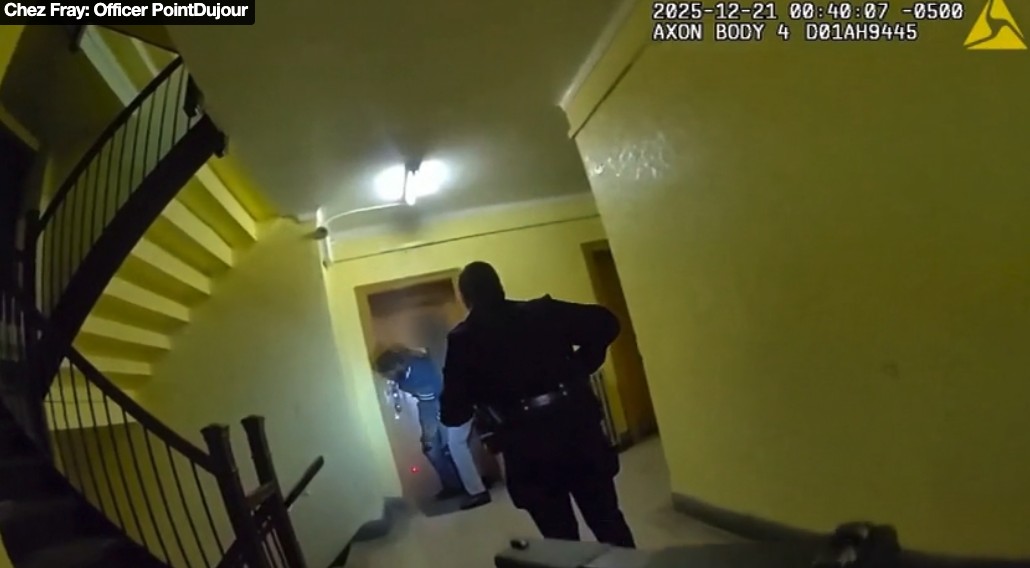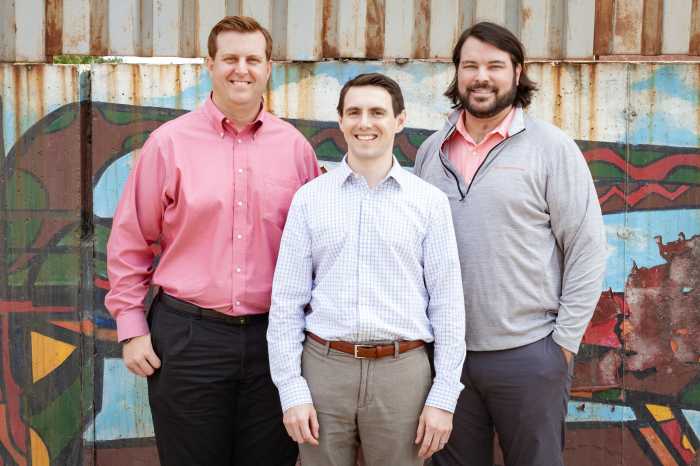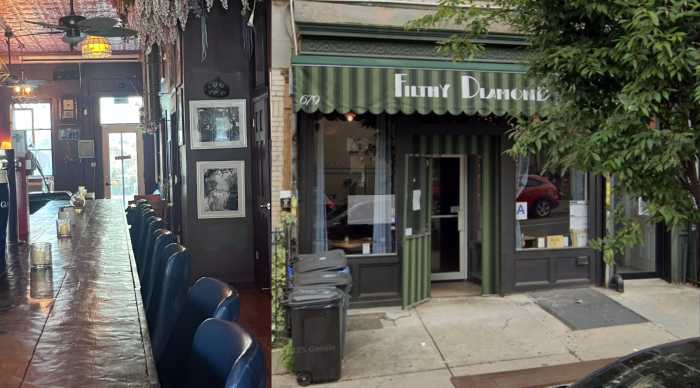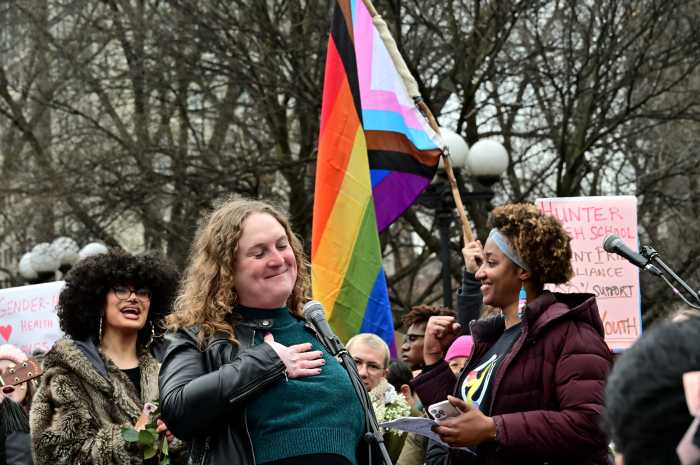Editor’s note: amNewYork Metro presents the third part in our “Everything is Too Damn High” series chronicling how New Yorkers are coping with higher prices at the pump, at the supermarket checkout line, and at home.
Inflation has caused a spike in seemingly every necessity in daily life, including gas and groceries. With the rising price of goods, residents are also finding it hard to pay their housing costs.
Housing prices are once again climbing to record highs in New York City after seeing substantial decreases during the pandemic, and many tenants renewing leases are being left on the hook for enormous increases in rent that they did not foresee when renting their apartment at the height of COVID-19’s rampage through the city.
Tenzing Tsering rents a house in Jackson Heights, Queens but worries he will lose his house since his business is struggling and inflation has completely curtailed his budget.
“We have to think first before we buy or take a step,” Tsering said. “Inflation has affected my family budget a lot. If we don’t pay rent, we will have to leave the house, and if we pay rent we have to reduce all our daily needs. It’s very difficult.”
Andy Mines, a guitarist living in South Williamsburg, Brooklynwith a fellow musician roommate, said that his landlord jacked up his rent by $600, from $2,100 to $2,700 when he signed his new lease for 2022. He moved in last January, taking advantage of the pandemic price decrease to downsize from two roommates to one, and noted that when he signed, the landlord had noted that the price was low because of COVID, but when pressed they were told that the rent was not likely to immediately jump back to pre-pandemic levels the following year.
With little recourse so soon before the lease was up, Mines and his roommate opted to re-sign at the higher rate. But the decision has had significant ramifications on Mines’ life and finances.
Most notably, Mines had to quit his job at a music school, and leave behind his 17 guitar students, because he couldn’t afford his new rent on his old salary.
“I almost had to hire a lawyer to arbitrate to get out of the contract,” Mines said. “I said look, I know I’m under the year contract, but I have a crazy situation where my rent went up 30 percent and I can’t pay my rent with what this school pays me.”
He’s now working at a new school with higher pay, but has to work more.
Ethan Kogan, a fellow musician who lives with a roommate in Bushwick, said that the landlord at his building on Hart Street asked for $3,600 in rent upon his Feb. 1 lease renewal — up more than $1,000 from the $2,200 he and his roommate leased the place, with a basement perfect for practicing music, for in Feb. 2021. The landlord allowed them a six-month extension which lets them stay in the apartment at current rent until August, but a condition of the extension was that rent would go up to $3,600 upon the start of the new lease.
“I’ve considered it, but honestly, it’s highly unlikely that I will be able to stay,” Kogan said. “I’d be paying $700 more, it’s rare that people make that jump.”
Peaking rents
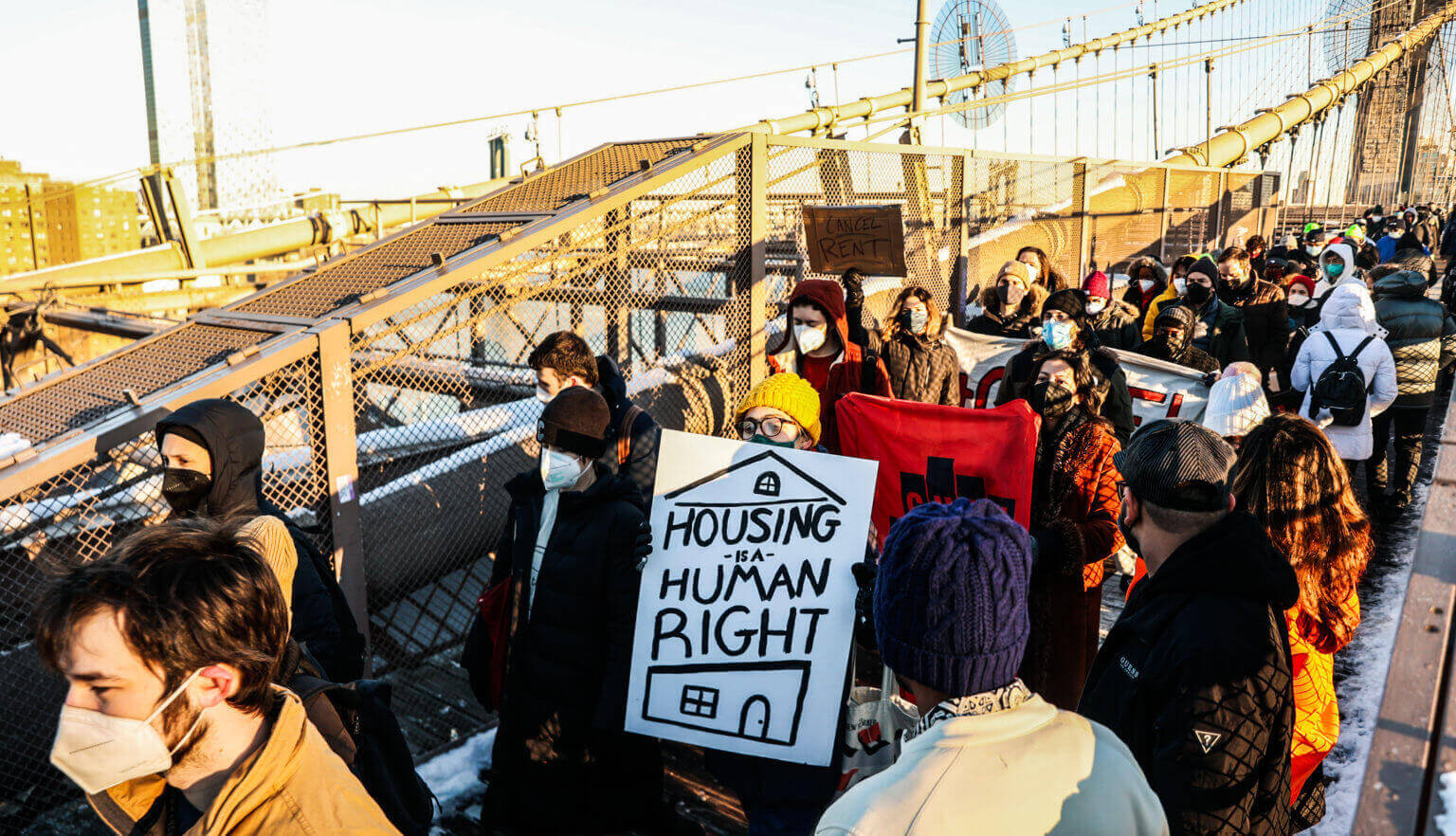
In Brooklyn, average rent prices peaked in April 2020, at the height of the pandemic in the city, at $3,533, according to real estate firm Douglas Elliman, which produces monthly reports on rental prices in Manhattan, Brooklyn, and northwest Queens. Afterwards, rents tumbled substantially citywide as hundreds of thousands of people fled the five boroughs for less crowded locales to ride out the pandemic, leaving landlords with an unexpected glut of vacant properties. Rents in Brooklyn bottomed out in January 2021, when the average rent was $3,008 according to Douglas Elliman. That month, vacant housing inventory had increased by 150 percent over a year prior.
It was only short-lived, however, as rents have been on the increase ever since as mass vaccination and testing made the pandemic a less deadly, all-encompassing threat in the eyes of many, leading many who left to return. In Brooklyn, average rents in January of this year were $3,162, up 5 percent from their nadir a year ago. The increase has been most pronounced in studio apartments, according to January report from Douglas Elliman; average studio rent in January was $2,567, up over 25 percent from $2,050 in January 2021. Vacant housing inventory is down 86 percent from last year.
The increase has been even more massive in Manhattan, where rents are almost back to where they were before the pandemic. Average rent in January in Manhattan stood at $4,570, a massive 16.9 percent increase from the $3,909 average in January 2021.
Last summer, New York overtook San Francisco as the most expensive city in the US, according to apartment search website Zumper. The Big Apple has maintained its lead over the Bay Area tech hub, with one-bedrooms renting for an average of $3,100 in New York versus $2,930 in San Francisco this month, according to Zumper.
The increase in housing prices echoes increases in items such as groceries and gasoline, owing to rates of inflation not seen in America in decades and myriad supply chain issues distorting the global economy.
The owners’ perspective
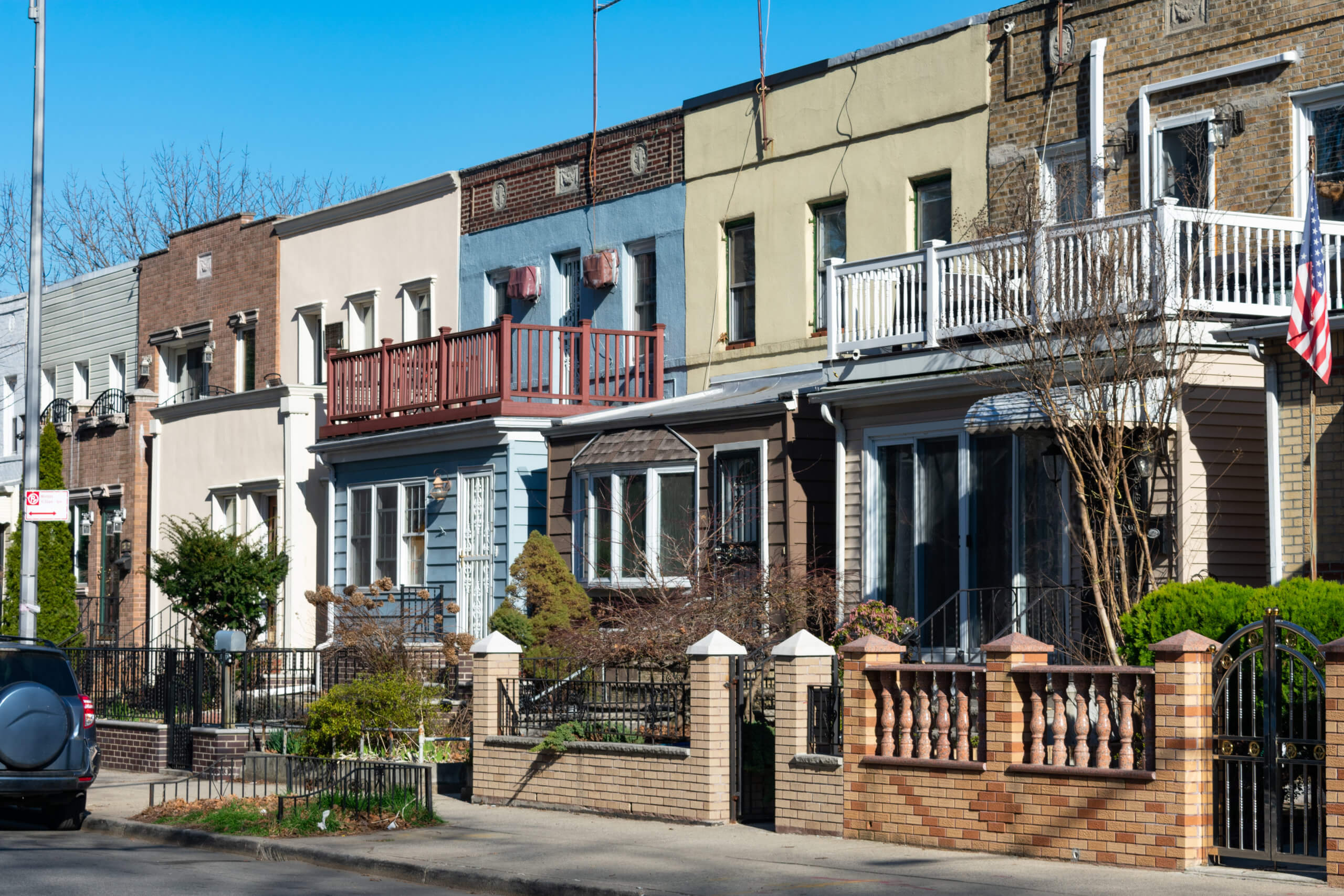
Ann Korchak, president of Small Property Owners of New York and the owner of two converted brownstones in Manhattan each containing ten units (which have been in her husband’s family for several generations), said that most of her bills have increased during the pandemic, some quite dramatically, even as rents dropped. She attributed rising rents, especially in units owned by small landlords, to those increased costs in addition to the restoration of demand.
“I think the biggest factor is right off the bat, you have to look at this through the prism of COVID. There were massive rent decreases as the pandemic went on,” Korchak noted. “But we are seeing massive increases in expenses also.”
Korchak said that her property taxes have gone up this year, and the city never provided comprehensive property tax relief as the state and federal government did toward evictions and mortgage payments. She said that between a third and half of rent revenue is spent on property taxes alone every year.
Many other costs have gone up as well, including her insurance bill which has increased 48 percent since last year (compared to single digits normally), along with her utility bills: her gas bill is up 40 percent since 2019 and her electric bill up an eye-popping 200 percent.
“It’s unsustainable,” Korchak said. “We live in a world where the landlord is vilified constantly. But other businesses, when they have rising costs, what they charge customers goes up. And we just don’t get looked at with the same kind of lens. But the reality is we do have these crazy massive increases, and how are they to be paid.”



